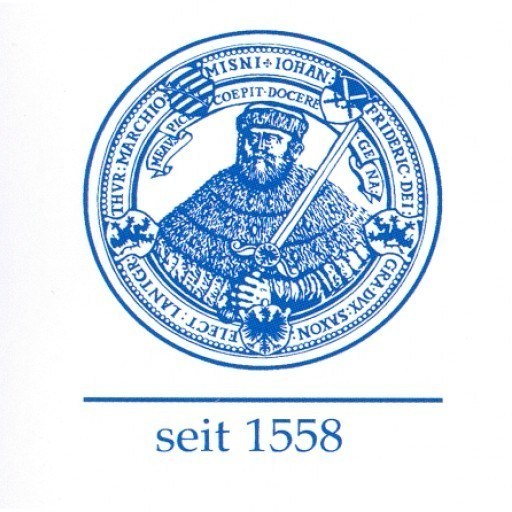Photos of university / #uni_fau
Our objective is the continuous optimisation of existing processes or the application of new processes to improve product characteristics and to reduce the number and quantity of undesired by-products and waste products.
Students can specialise in chemical or biological applications or in process technology and can choose from a broad range of subjects. Experience in project development is gained in a group project for all students on the course.
Educational organisation
Students of Chemical and Biological Engineering choose four of the following eight specialisation subjects:- bioprocess and bioreaction engineering
- product engineering
- process machinery and plant technology
- chemical reaction engineering
- fluid mechanics
- technical thermodynamics
- separation science and technology
- simulation of granular and molecular systems
Study abroad unit(s)
It is possible to do the internship (twelve weeks) with a suitable company abroad.Internships
An internship of twelve weeks is to be completed during the third semester. Programme advisers will assist students in finding an appropriate internship.Forms of assessment
Most lecture subjects have oral examinations. Some subjects are ungraded and are tested through an oral or a written exam. The Master's thesis is a written report.Course objectives
The Master's course in Chemical and Biological Engineering aims to educate engineers for careers in the chemical and pharmaceutical industries or in biological and environmental process technology, and to prepare them for the complex tasks in these branches. A balance between practice and theory and an orientation towards industrial and social developments is achieved in a curriculum including both classical fundamentals and modern topics from current research, and by means of close cooperation with the relevant industries.Language requirements
The required level of proficiency in English and German is B2 (according to the Common European Framework of Reference for Languages).Required DSH / TestDaF
YesAcademic requirements
Bachelor's or Dipl-Ing (FH) degree in chemical engineering, process engineering, biotechnology, or a closely related engineering subject; above-average gradesEnrolment fees
The contribution to student services currently amounts to 42 EUR per semester. An additional charge of 65 EUR per semester covers the mandatory basic "semester ticket", a transit pass that provides students with unlimited access to public transport in the metropolitan region of Nuremberg from 7pm to 6am on weekdays and at all times at weekends. (For an additional optional charge, the validity of the pass can be extended to 24 hours a day, seven days a week.)Costs of living
The cost of living can only be approximated very generally, as the needs and living conditions of every student are different.Rent: 250-600 EUR per month
Health insurance, doctor, medicine: approximately 70 EUR per month
Food: approximately 165 EUR per month
Study materials: approximately 30 EUR per month (depending on the subject)
Transport: minimum 65 EUR per semester
Student services: 42 EUR per semester
For more information, see: http://www.fau.eu/study/prospective-students/financing-your-studies/costs-of-studying
General information on the average cost of living in Germany is available online: http://www.internationale-studierende.de/en/prepare_your_studies/financing/costs_of_living
Job opportunities
Opportunities for work as part-time student assistants, normally on a research project within the department, are generally available.Funding opportunities within the university
The Central Office for International Affairs offers scholarships from Bavarian state funding to allow highly qualified international students in Master's, "Diplom", and State Exam degree courses to complete their degrees.http://www.fau.eu/international/international-applicants/bachelors-masters-state-examinations/during-your-studies/scholarships-for-international-students-about-to-graduate/
Arrival support
You can find all relevant information at the following website:http://www.fau.eu/international/international-applicants/important-information/
Services and support for international students
The Student Advice and Career Service (IBZ) will provide you with detailed information on all important topics relating to your studies (study courses, subject combinations, application requirements, support with organising your study programme and complying with all assessment/examination requirements) and on settling in at the beginning of the semester (coping with particular difficulties, changing subjects or suspending studies). For more information, see http://www.fau.eu/study/prospective-students/student-advice.The Career Service of FAU will provide you with information on career opportunities and the specifics of an application procedure in Germany. For information, see: http://www.fau.eu/study/current-students/career-service.
The Student Service Centres (SSC) and student advisers in the faculties will provide you with further advice on your particular course of study. Programme coordinators organise subject-related orientation events and guide you through the entire study period.
The Central Office for International Affairs (RIA) will provide you with detailed information on accommodation, visa issues, and scholarship possibilities. In cooperation with the IBZ, it also organises information events and general orientation courses for first-semester-students.
See: http://www.fau.eu/international/international-applicants.
The Alumni network provides students with many topics and events for professional advancement. See: http://www.fau.eu/alumni.
Accommodation
Erlangen and Nuremberg are attractive cities with a historic flair and modern infrastructure. Therefore, the housing market is quite tight. FAU will do its best to assist new students in finding accommodation.Student halls in Erlangen and Nuremberg can only provide accommodation for a small number of students. Another option is the private housing market. If you extend your search to neighbouring towns, such as Fürth and Forchheim, your choice of accommodation is much larger and rents are lower, while the well-developed local public transport system ensures that you're never far away from the university. In addition, there is the option to sublet a room, or you can share a flat with other students. This option not only saves you money but also helps you settle in quickly and make friends in your new home. You can find information to help with your housing search on specialised websites and the university's notice boards.
Detailed information on finding accommodation is available at http://www.fau.eu/international/international-applicants/important-information.
If you need further assistance, you can also turn to the Accommodation Service of the Central Office for International Affairs (RIA). E-mail: accommodation@fau.de.










